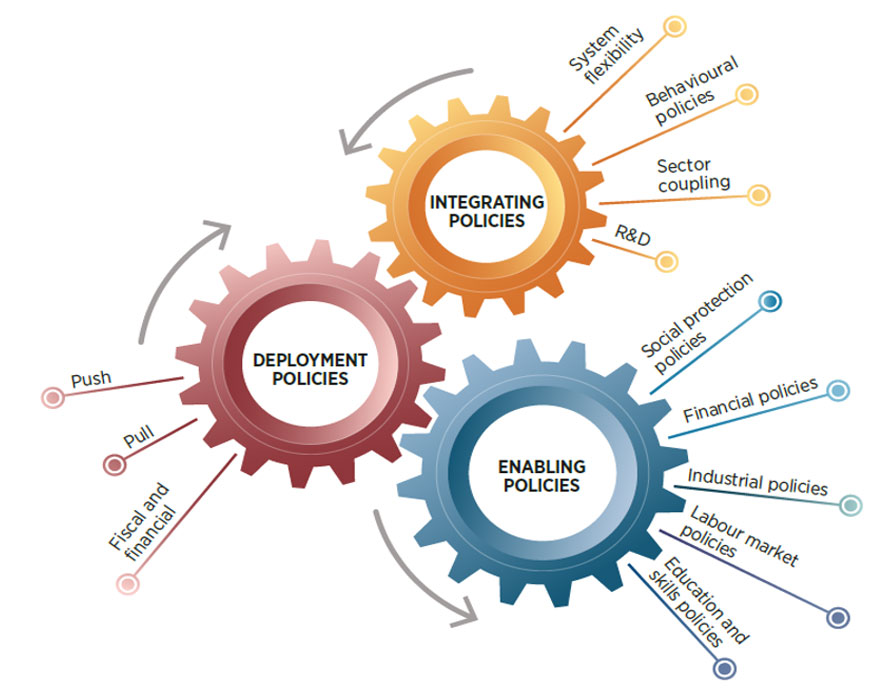
Just Transition Strategies
The transition will bring about a profound change in labour patterns, producing significant misalignments in all regions. These misalignments fall into four categories:
- Temporal misalignments: The creation of new jobs does not necessarily take place at the same time as the loss of employment.
- Spatial misalignments: New jobs are not necessarily created in the same locations – communities, regions or countries – where job losses occur.
- Educational misalignments: The skills associated with vanishing jobs do not always match those required by emerging jobs.
- Sector misalignments: Job gains and losses may affect different sectors of the economy, given different supply-chain structures and diverging sets of inputs between rising and declining industries.
These misalignments will unfold against the broader reality of structural unemployment that remains a critical issue for almost all countries.

Co-ordinated deployment policies and related measures are required to facilitate the integration of renewables into energy distribution systems and end-use applications, and to ensure sufficient system flexibility as variable renewables grow in importance. Enabling policies ensure that the energy transition is implemented in ways that are broadly beneficial and that avoid or minimise dislocations for individuals, communities, countries and regions. They include the following:
- Well-designed industrial policies that build, enhance, and appropriately leverage domestic economic capacities, based on a careful analysis of relevant and transferable material assets and human expertise.
- Effective labour-market interventions that offer adequate employment services (matching jobs with qualified applicants; promoting employee well-being; facilitating on- and off-job training; and implementing job safety nets), along with measures to facilitate labour mobility, such as relocation grants.
- Targeted educational and skills development policies and programmes to take full advantage of the job opportunities that emerge from the energy transition. Co-ordinated by government, strategic collaboration between educational institutions and renewable energy industries can help to reduce or avoid mismatches between skills demand and supply. Special attention is needed to detect opportunities for reorienting the skills and expertise of fossil fuel workers towards the clean energy sector.
- Social-protection measures that provide support for vulnerable workers and their communities so that they do not shoulder an unfair burden of the energy transition. This includes measures for income stability through unemployment insurance and other programmes, policy incentives for employers to retain (and retrain) workers where possible, and flexible, longer-term employment contracts to promote job stability.
- Proactive just-transition strategies designed to minimise socio-economic disruption. In addition to the policies enumerated above, these may also encompass public investments and economic diversification measures for affected regions and communities